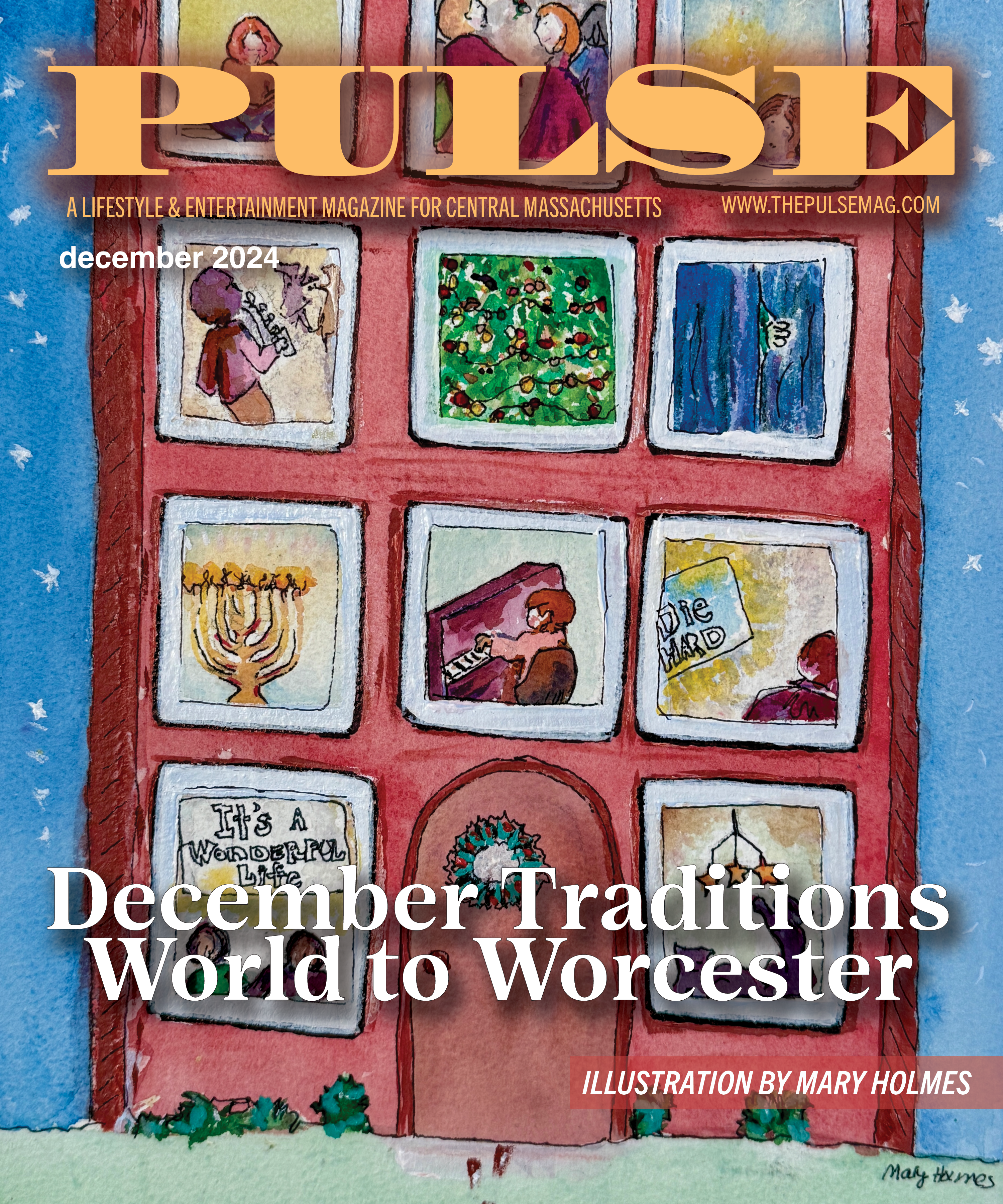The Worcester Rugby Football Club
All for One and One for All
By Kim Dunbar
May 2006 –
The History
When Chris Monaghan was in his 20s, he played racquetball to stay fit ~ that is, until a recruiting poster for the Worcester Rugby Football Club (WRFC) caught his eye. “I asked my friend what the hell rugby was,” said Monaghan. The two attended a game and immediately joined the team. “I’ve never looked back,” said Monaghan, who took over as WRFC President in January.
The Worcester Rugby Football club was formed in 1979 by a group of friends who returned to the city after playing rugby in college played in college ~ Kevin O’Sullivan, Tony Poti, Bob Reidy, Jordan Weinstein, and Rob Anderson. The five friends formed their club around another man, Mike Minty, who had grown up playing rugby in his native South Africa, and they were joined shortly after by Fred Greenaway, a New Zealand native and Clark University professor. According to Monaghan, Minty became the glue of the team. “He was a huge influence on the club, both playing and coaching a bunch of guys and forming them into a team.”
Monaghan says that gradually “…the club has evolved from a bunch of enthusiastic players with varying degrees of athleticism having fun to a more serious, goal driven team.” The WRFC was invited to join the New England Rugby Football Union Division I field of play after a very successful 1999 season. They has thrived in their new division, finishing in the top four teams in the country two of the last three years, including last spring when the club finished third in the nation.
This Year’s Plan
This year is about rebuilding for the team, which lost many of the players from last year’s club. “Rugby is a young man’s sport,” says player and first-year coach Sean Hillier, who played rugby in his native Newfoundland from the ago of 14 on, and for the past eight years in the United States. “There is always a big turnover in this sport. Guys get too old, or decide to move on with their professional lives.”
The WRFC is not in the playoffs this spring (losing in the qualifiers last fall) but is using the spring season of friendly matches to develop a new side with all the fresh young faces on the field. “Our number one goal is to identify our team and to build a strong core,” shares Paul Foley, Vice President of Community Liaisons, winger and fullback for the WRFC. According to Foley, the team’s win against a Division I team in Boston in March was a huge step for the organization. “It was a pivotal game in terms of moral,” he says and adds proudly that “We are currently at is a better place than I thought we might be.”
The Perception vs. The Reality
“The biggest misconception of the sport of rugby is that we’re a bunch of drunken fools,” says Hillier. “But in reality we really train hard. The social aspect and camaraderie of the game comes after.” In the sport of rugby, it is tradition for the home team to invite the visitors back for drinks after the game, which is where camaraderie between players blossoms. However, this type of activity has given rugby players a negative image. “Many who have seen or heard the stories of college rugby teams run amok have a less than glowing picture of rugby,” says Monaghan. “While that was somewhat common in its infancy, it is much less so on college campuses today and even rarer on club sides like WRFC. Our players are members of the community with families, careers, etc. that must be part of a balance. Drunken revelry is no longer the norm. If we were all so rowdy, we would be in the paper all the time,” he says.
Another misconception about the sport is that it is very dangerous. Rugby is a rough game that is played with little protective equipment, giving rugby a reputation as a very violent sport. Foley agrees that rugby is a violent sport to a degree, but at the same time it is an honest sport. “You can’t just throw yourself at someone as hard as you can like you can in the NFL,” he says. “Rugby is a contact game, but the fact that there are no pads and the way the rules are designed makes the game safe for players,” assures Hillier, who has suffered only minor injuries in 17 years of play. “With pads, you are fearless. Without them there is a respect factor of what your body can and can’t do,” he adds.
Monaghan says there is also a code of honor among players that limits the dirty play. “Rugby is more open,” says Foley. “You can see the injuries, they are more readily visible than they are in football. So it’s about perception, not reality.”
All for One and One for All
Rugby is the ultimate team sport and therefore teaches and requires a sense of team effort that is a valuable lesson for players of all levels. “If you watch the game you will realize it is a sport that demands everything out of every player,” says Foley. “You have to run, catch, pass, and make moves. It’s what makes rugby unique and captivating. This sport has given so much back to me than I could ever give to it,” he adds. “Camaraderie among players is everything in this sport,” said Hillier. “I have played all over the world and there is no place like [Worcester].” Hillier explains that when he first arrived in the States, the WRFC assisted him in finding lodging and work. “The WRFC has been my family for eight years,” he said. “A rugger can travel anywhere in the world and make instant connections and friends with the local team,” said Monaghan. “The guys I played with over 25 years ago are now among my closet friends. There is a bond even with players from other clubs that we have battled each other for so many years and are still going at it. Who else would be so crazy?”
The Future of the Sport
Rugby is very popular in other countries, as football and baseball are in America. But according to Hillier, the popularity of rugby in the U.S. has grown tremendously in the last six years. “There are more youth leagues popping up and it is becoming known as a college sport,” he said. Monaghan agrees that rugby is the fastest growing sport in the country, adding that the Mt. View School in Holden has integrated rugby into its Physical
Education program.
Foley, who found his love and respect for rugby through the Worcester Youth League when he was 15, said the WRFC is currently working with the city to restore that league. He says the league disappeared because it was not affiliated with a high school the city would not give them field time. But with several high schools interested in the idea of a rugby team, the youth league is very close to returning to the city.
The WRFC’s Upcoming Schedule:
May 6 at Providence
May 20 Newport NERFU Cup (home game played at Lake Park on Lake Ave. in Worcester)
Visit www.wormtownrugby.com for more information on the club!







Hi guys!
Nice to meet you all. Just wanted to say hello!
————————————
www.bookoutlet.info